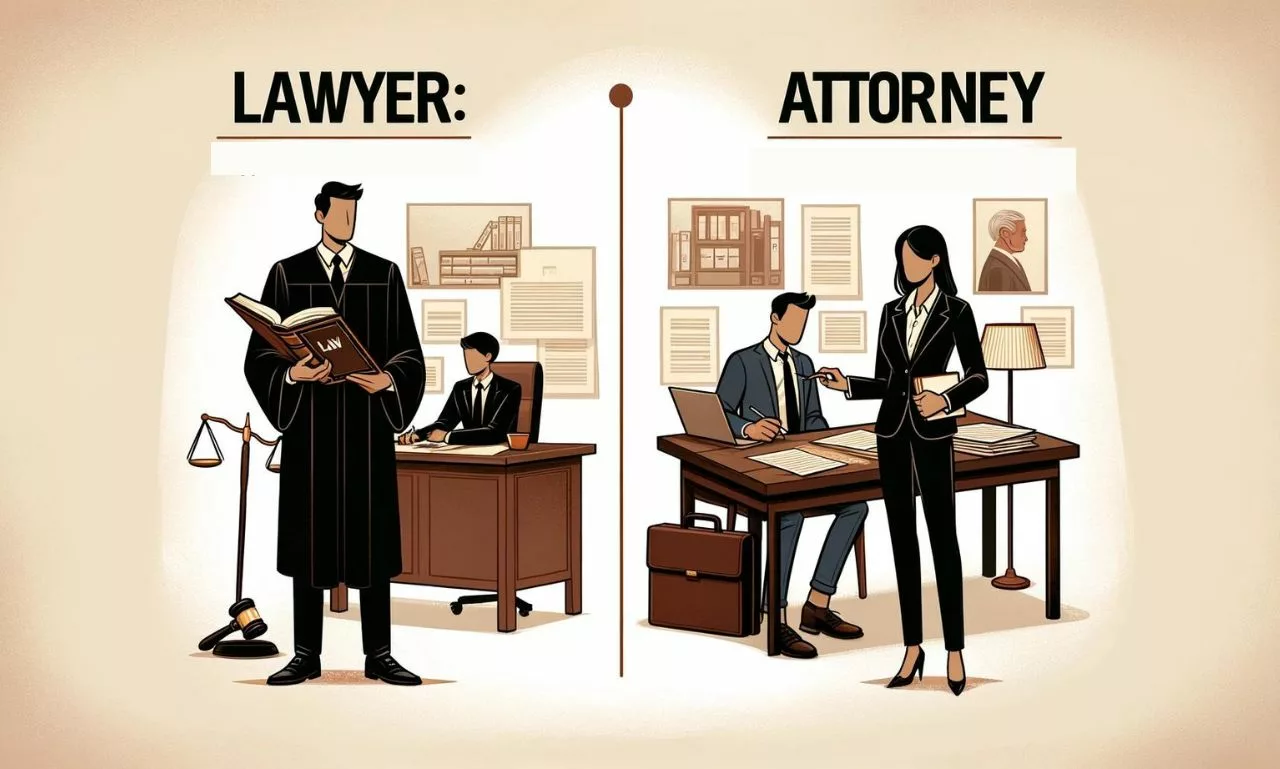The terms “lawyer” and “attorney” are often used interchangeably in everyday conversation, and many people assume they mean the same thing. However, in the legal profession, there is a distinction between these two titles, which relates to qualifications, roles, and responsibilities. Understanding the difference is important for individuals seeking legal advice or considering a career in law. In this article, we will explore these differences in a step-by-step manner to provide a comprehensive understanding of what sets a lawyer apart from an attorney.
Table of Contents
Step 1: Defining the Terms
Lawyer:
A lawyer is someone who has been trained in law. This person has attended law school and acquired a broad understanding of legal principles. However, being a lawyer does not necessarily mean that the individual is licensed to practice law in a courtroom or offer legal advice. The term “lawyer” can refer to anyone with a law degree or someone who is involved in the legal profession but might not be involved in the practice of law, such as legal consultants or academics.
Attorney:
An attorney, or more fully, an attorney-at-law, is a subset of lawyers who not only have a law degree but are also licensed to practice law in a specific jurisdiction. Attorneys have passed a bar examination and have been admitted to the bar in one or more jurisdictions, which authorizes them to represent clients in legal matters, including drafting legal documents, offering legal advice, and appearing in court.
Step 2: Education and Licensing
Lawyer:
- Education: Lawyers must complete a bachelor’s degree followed by a Juris Doctor (JD) degree from a law school accredited by the American Bar Association (ABA) or the appropriate regulatory body in other countries.
- Licensing: While lawyers have legal training, they are not required to pass the bar exam or become licensed to be considered a lawyer. Many choose to pursue careers that utilize their legal education but do not involve practicing law.
Attorney:
- Education: Attorneys must meet the same educational requirements as lawyers, which includes obtaining a JD degree.
- Licensing: Upon finishing their educational pursuits, those aspiring to become attorneys are required to successfully clear the bar examination in the jurisdiction where they intend to establish their practice. In addition, they may be required to pass an ethics examination and undergo a character assessment.
Step 3: Roles and Responsibilities
Lawyer:
- Lawyers can work in various capacities that do not involve representing clients in court, such as legal research, writing, and education.
- They may offer general legal advice but are not authorized to practice law unless they also qualify as attorneys.
- Lawyers often work in law firms, corporations, government agencies, or non-profit organizations in roles that require a legal background but not necessarily a license to practice law.
Attorney:
- Attorneys have the authority to act as legal representatives for their clients in court, negotiations, and other legal proceedings.
- They can draft and file legal documents, such as lawsuits, appeals, wills, contracts, and deeds.
- Attorneys have a fiduciary duty to their clients, which means they are obligated to act in the best interests of their clients within the bounds of the law.
Step 4: Ethical and Professional Standards
Both lawyers and attorneys are bound by ethical and professional standards set forth by the legal profession. However, attorneys, as licensed practitioners, are subject to more stringent regulations and disciplinary actions by the bar association or regulatory body that licenses them. Attorneys must adhere to the highest standards of legal ethics, including confidentiality, competence, and avoiding conflicts of interest.
Conclusion
While the terms “lawyer” and “attorney” are often used synonymously, they have distinct meanings within the legal profession. The primary difference lies in the ability to practice law, which is reserved for attorneys who have met the additional requirements of licensing and bar membership. Understanding these distinctions is crucial for individuals seeking legal representation or advice, as well as for those considering a career in the legal field.
